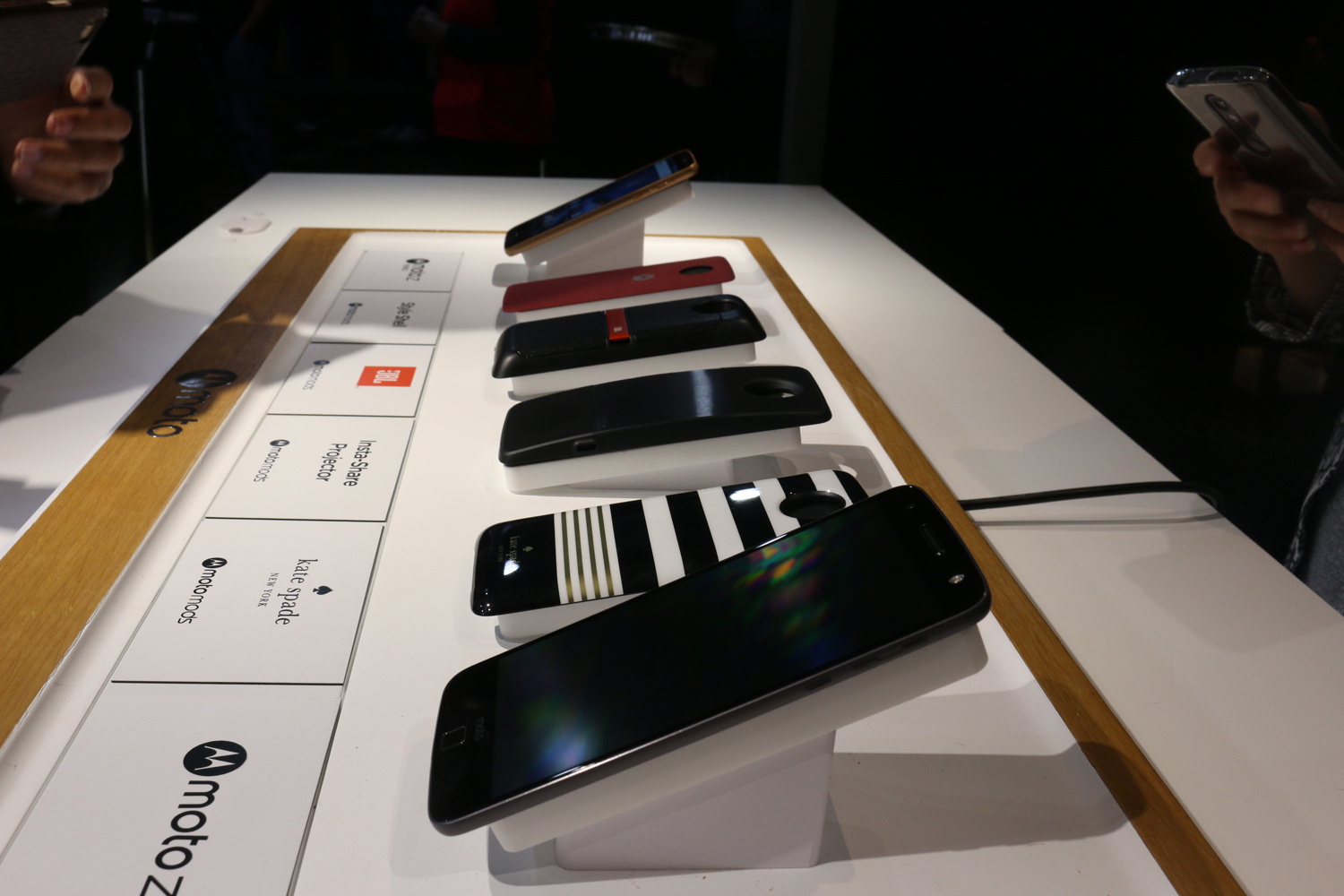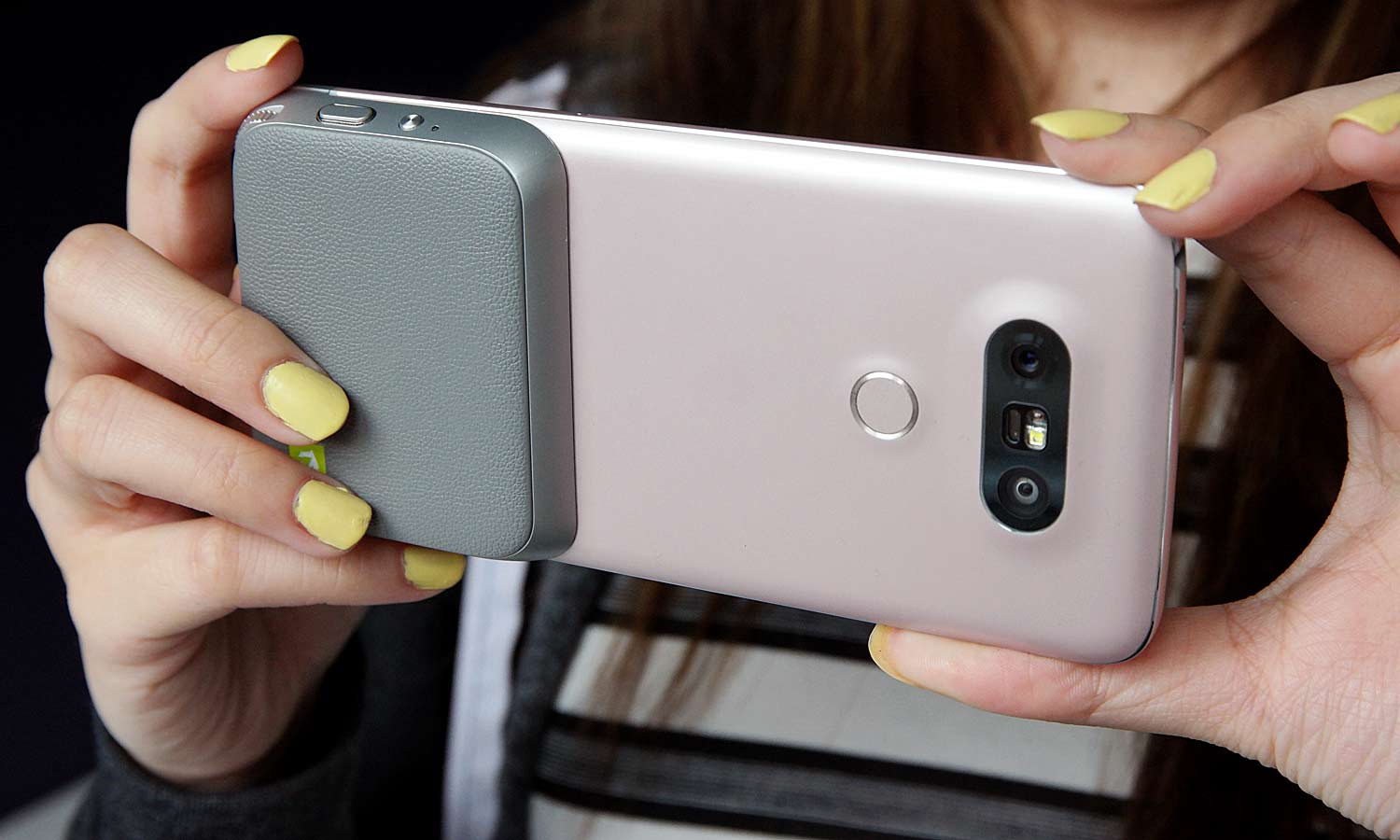Modular Phones Will Flop Without Better Add-ons
With Lenovo now joining LG in the modular smartphone businnes, it's the quality and innovation of the add-ons that will determine whether people flock to this new kind of phone.
The debut of the Moto Z and Moto Z Force may have closed out Lenovo's Tech World keynote this week, but it was the add-ons that accompany these two new modular smartphones that got the bulk of the attention. Lenovo executives breezed over the specs of the new phones to talk about the modules you could attach to them, and the hands-on area for the Moto Z was dominated by these add-ons, which Lenovo has dubbed Moto Mods.
The Moto Mods on show Thursday included an attachable speaker from JBL, a mini projector, and a couple different battery packs that can extend the battery life of either Moto Z model. In addition, the demo area included style shells, which can change the look and feel of the Moto Z. And Lenovo plans to offer even more Moto Mods after the phones arrive this summer.
"The possibilities are endless," said actor Ashton Kutcher, who moonlights as a product engineer for Lenovo, during this week's keynote.
Based on the initial wave of Moto Mods we saw at this week's launch, the possibilities are pretty predictable at this point, too.

Not that extra battery life is something to dismiss out of hand — I sure could have used it at the Lenovo event as my iPhone's battery dipped perilously into the red. But creating a phone add-on that provides an extra battery boost seems like a fairly obvious solution, especially since you can already buy cases and add-ons that do precisely that. The same thing goes for speakers and projectors: Those already exist as smartphone accessories. Lenovo has just made it so that its versions attach directly to the phone itself.
MORE: 25 Worst Gadget Flops of All Time
That's not to pick on Lenovo. LG has the same issue with its modular phone, the G5, and the initial modules it's rolling out. The LG Cam Plus module that adds dedicated still image and video controls to the G5 is a good add-on — we rather liked it in our hands-on time with the camera add-on — but it's an extension of what a smartphone can do, not a reinvention. The same thing goes for the other G5 module LG touted when it unveiled the G5 — a digital-to-analog converter that has yet to go on sale in the U.S.
Lenovo and LG could create compelling add-ons that make phones with swappable parts a must-have, but in the early going, that hasn't happened yet.
The argument for modular phones is a solid one: Instead of loading devices down with sensors and hardware that only a handful of users need, you can create specialty modules that people can swap in and out at will. The trick, though, will be to create modules that not only integrate slickly with the phone but take its functionality into new directions. Otherwise, why not just turn to accessories? In fact, Otterbox has taken that argument to its logical conclusion with its Universe case for the iPhone that lets you swap in different modules.

Modular smartphone makers like Lenovo and LG could come up with compelling add-ons that make phones with swappable parts a must-have device. But in the early going for modular phones, that hasn't happened yet.
It's little wonder then that phone makers are turning to hardware makers for help in boosting the case for modular devices. LG has released software and hardware development kits, while holding developer conferences in South Korea and San Francisco to encourage companies to develop add-ons for the G5. Lenovo is following the same tack, releasing a Moto Mod development kit and dangling a $1 million prize to whoever comes up with the best prototype for a Moto Z module.
Lenovo has a few ideas of its own, if a session on innovations that I sat in on at Lenovo Tech World is any indication. There, Lenovo executives ran through a few Moto Mod concepts, including a fast-charging battery pack (think going from empty to 85 percent charged in 15 minutes) and another projector module that would beam a working keyboard onto a table top that you can use as an input device for your phone. Saving me from having to tote around another accessory to get work done on my mobile device? That's an innovative module I can get behind.
Makes of modular phone add-ons would be wise to look at what Google's doing with Project Ara. Yes, Google's modular smartphone project will include the usual spate of add-on cameras, speakers and battery packs. But among the modules Google touted at last month's Google I/O developers conference were add-ons that could monitor diabetes, help you navigate using GPS and let you send text messages even when cellular and Wi-Fi connections aren't available. The ability to slot in these capabilities make modular phones sound like a much more promising technology.
Get instant access to breaking news, the hottest reviews, great deals and helpful tips.
What innovative add-ons would you like to see added to a modular smartphone? Assuming that Lenovo's cash prize hasn't given you 1 million reasons to keep your idea to yourself, feel free to share it in the comments.
Philip Michaels is a Managing Editor at Tom's Guide. He's been covering personal technology since 1999 and was in the building when Steve Jobs showed off the iPhone for the first time. He's been evaluating smartphones since that first iPhone debuted in 2007, and he's been following phone carriers and smartphone plans since 2015. He has strong opinions about Apple, the Oakland Athletics, old movies and proper butchery techniques. Follow him at @PhilipMichaels.
 Club Benefits
Club Benefits






